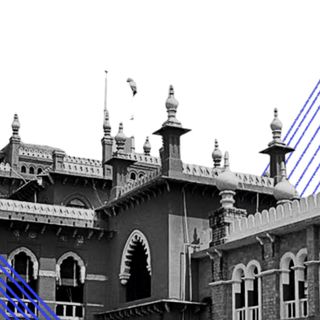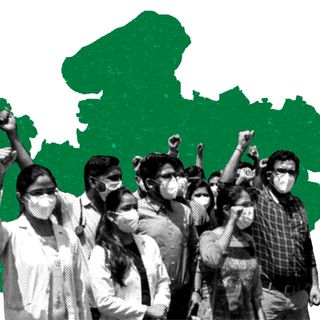The Supreme Court on Monday ordered the removal of slum dwellings — which the court called “encroachments” — on the Khori Gaon forest, a part of Aravali Forest in Faridabad, within six weeks.
The court was responding to a plea filed by at least 10,000 families from the Khori Gaon Basti, seeking a stay on the municipal corporation’s drive to demolish their dwellings. The bench, consisting of Justices A.M. Khanwilkar and Dinesh Maheshwari, upheld prior court decisions to evict the dwellers and ordered the civil body to submit a compliance report after clearing the land within the stipulated time.
The present petition in the court was filed by the people living in these homes, andargued that the jhuggis have been in existence since the 1980s — demolishing them without prior rehabilitation arrangements constituted a violation of the families’ right to housing, they said. The rehabilitation requirement, under the “Haryana Sehri Vikas Pradhikaran Rehabilitation Policy,” excluded several families who did not have proper documentation.
The petitioners, alongside seeking a stay on demolition, also challenged the Rehabilitation Policy, which limits rehabilitation eligibility to only those who lived on the land prior to 2003. Their petition argued that the families living in this area are poor and not in possession of documents as proofs of residence, as is required for rehabilitation. Further, the petition claimed that the families did not possess any proof of identity dating before 2010, since they did not have ration and election cards until then.
“Out of about 10,000 families from Khori Gaon informal settlement, less than 1000 families would qualify for rehabilitation under the said Policy, and the residents would be rendered homeless if the Municipal Corporation undertakes the demolition/eviction drive which it has been threatening repeatedly,” the plea stated, while calling the demolition illegal.
Related on The Swaddle:
India’s Forests Expanded This Decade, Yet Indigenous Communities Are Still Being Forced Out: Report
Senior Advocate Colin Gonsalves, representing the petitioners, requested reconsideration of the rehabilitation policy. “As the Court in its previous judgement has held that all those who have the documents in accordance with the policy may submit the document and they will get relief. But when we look at the policy, we realize that the clause in the policy was arbitrary,” he said.
The court, however, said that the question of rehabilitation shall be considered by the state government separately, after the forest land has been cleared. “Land grabbers cannot take refuge under the law and talk of fairness,” stated the bench.
The court ordered the local police to extend protection to the civic authorities during the eviction process and to use force if needed. “No concession with regard to the forest land. Do not give us Covid excuses,” the court further said.
The municipal corporation of Faridabad previously evicted 300 houses in April 2021 and over 1,200 in September 2020 as part of its demolition drive. “The MC razed another 300 houses of the poor without issuing any notice. The MC demolished these houses in spite of the fact that a case related to it is pending in the High Court,” activist Nirmal Gorana of the Bandhua Mukti Morcha, an NGO rallying to end bonded labor, told The Patriot.
The court asked the petitioners to clear the land on their own, failing which it would be carried out by the municipal corporation. According to Live Law, the court was not willing to admit Advocate Gonsalves’s submissions that the residents are poor and would be scattered due to the pandemic.
“This is about forest land and this is more important,” said the court.




